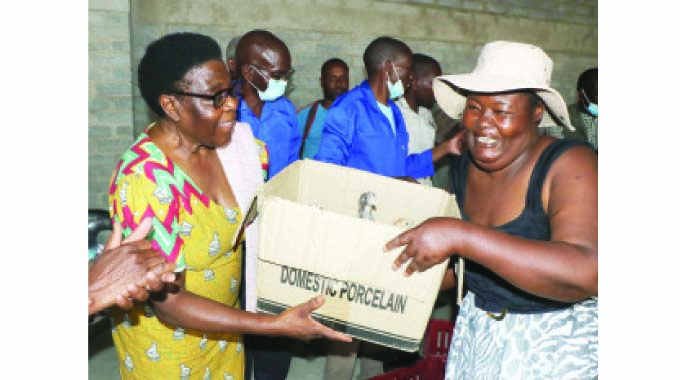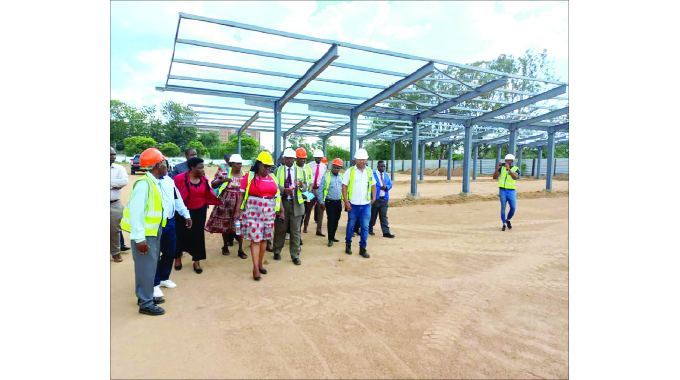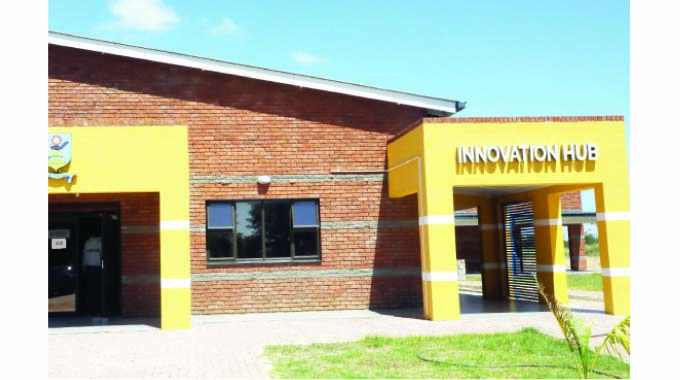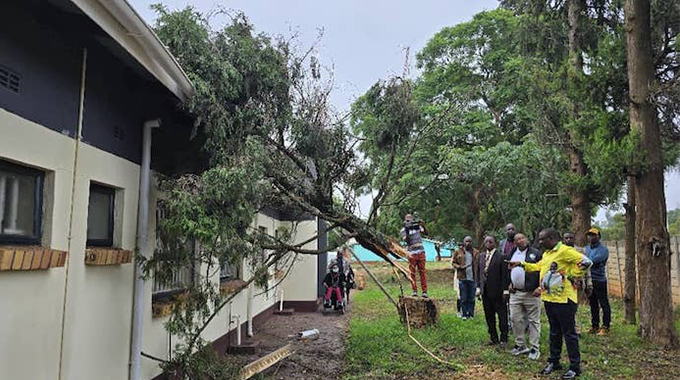Presidential Poultry Scheme launched in Bulawayo

Sikhumbuzo Moyo, Senior Reporter
GOVERNMENT is targeting 100 000 urban farmers in Bulawayo to benefit from the Climate-Proofed Presidential Inputs Scheme, popularly known as Intwasa/Pfumvudza while 32 000 chicks will be distributed to peri-urban farmers under the Presidential Rural Poultry Scheme.
Yesterday, 10 000 chicks were distributed to 1 000 households during the provincial launch of the scheme at Mazwi Hall in Ward 17, Khami District.
Each household got 10 chicks while 240 farmers who have since prepared their land received seed and fertiliser under the Intwasa/Pfumvudza programme.

The Provincial launch of the Presidential Poultry and Presidential input schemes at the New Mazwi Hall yesterday.(Picture by Maita Zizhou)
Each farmer received a 2kg packet of either maize seed or sorghum per plot while three farmers will share 50kg of ammonium nitrate fertiliser. Government is targeting to produce 3 million tonnes of maize during the 2022/23 summer cropping season.
This comes as the Second Republic has made food security a priority and is working towards a US$8,2 billion agriculture industry economy, contributing 20 percent of GDP by 2025, underpinned by the country’s National Development Strategy 1 (NDS1) — the driver towards Vision 2030 to make Zimbabwe an upper middle-class economy.
The country requires 2,2 million tonnes of maize for human and livestock consumption and the 3 million tonnes target will position Zimbabwe as a significant player in grain production in the region.
Unlike in the previous two seasons, this year’s Intwasa/Pfumvudza cropping programme is focused more on climate proofing with Government only supplying inputs to farmers based on their agro-ecological region as opposed to the farmer’s interest.
In Matabeleland, there are three agro-ecological regions based on the amount of rainfall that is received. Officially launching the provincial Presidential Rural Poultry Scheme, Bulawayo Provincial Affairs and Devolution Minister Judith Ncube said in line with the Second Republic development agenda of leaving no one and no place behind, the scheme, though primarily focusing on rural areas, will also benefit urbanites.
“Initially, when President Mnangagwa launched the Presidential Rural Poultry Scheme in Masvingo in August, the two metropolitan provinces of Harare and Bulawayo were initially not part of the programme since urban dwellers had to contend with municipalities’ by-laws, but we had to lobby,” she said.
“We argued that we have farmers within the peripheries of these cities with enough land to venture into poultry farming. True to his philosophy of leaving no one and no place behind, the President agreed to include the peri-urban areas hence today we are launching the scheme in Ward 17.”
Minister Ncube said Bulawayo metropolitan province was allocated 32 000 chicks. The scheme will see three million rural households getting 10 free-range chicks each in batches over the next five years.
The Presidential Rural Poultry Scheme is set to commercialise rural poultry production and increase rural incomes while providing households with a rich source of protein.
The breeds of the chickens include Boschveld, Sasso, Kuroiler, and indigenous chickens. Zimbabwe has over 50 million indigenous chickens.
The Presidential Rural Poultry Scheme intends to provide 30 million rural chickens to three million households throughout the country.
The scheme has also raised hopes among rural communities that they will soon become hubs for organically-produced live chicken, eggs and chicken meat in the next two to three years, with the country set to earn thousands of dollars from exports of the products
Minister Ncube urged farmers to grow their flock through practicing good management skills and taking technical advice from veterinary experts.
“Once farmers have grown the flocks, they will be able to supply urban households with quality chickens and in the process generating income. The Presidential Poultry Scheme is one of Government’s critical initiatives meant to rebuild livelihoods and create self-employment opportunities that will result in resilience in the wake of the devastating effects of climate change,” she said.

Ward 17 residents in Khami Dsitrict gathered for the Provincial launch of the Presidential Poultry and Presidential input schemes at the New Mazwi Hall yesterday.(Picture by Maita Zizhou)
The minister said the interventions by the Government have a significant impact on the sustenance of livelihoods, food security and broad economic development.
In interviews, farmers who are also beneficiaries under the scheme, said they are looking forward to producing increased yields and becoming more self-sufficient.
“Last season, I really didn’t get anything worth talking about from my plot because we received seeds very late that was around February at the tail end of the rainy season. This year, we received the inputs on time and I am confident of recording a bumper harvest,” said Mrs Josephine Moyo of Robert Sinyoka village.
“As a widow, I am optimistic that I will get enough food for my family. I am also happy that I have received 10 chicks and I will make sure they are well looked after so that I am able to generating more income.”
Mr Zoushe Gumbo of St Peters Village thanked President Mnangagwa for being a hands-on leader who attends to people’s challenges.
“We want to thank President Mnangagwa for implementing the rural poultry scheme because besides boosting our nutrition, the programme will also earn us income through the sale of chickens,” he said.
“I also received inputs for the summer cropping season and my target is to get not less than 20 bags of maize. Last year, I only managed to harvest six bags because of the prolonged dry spell.”
The vice chairperson of Robert Sinyoka village, Mr Richard Thebe said despite lack of knowledge in poultry farming, they are ready to embrace the new business model.
Mr Thebe said he is confident that the Government through agricultural experts will provide technical assistance on poultry farming.
Mr Thebe said the late distribution of inputs in the previous farming season contributed to low yields.
“What makes me happy this time is that Government availed inputs right on time just when the skies are starting to open up and this has boosted our confidence as farmers and what it means is that a bumper harvest is imminent,” he said.












Comments